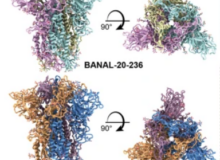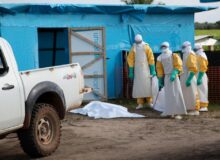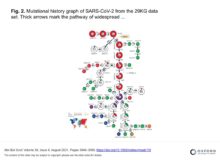Jonathan Latham and Allison Wilson
Understanding of the ‘problem’ of agriculture took a giant step forward in 2007 with publication of the UN IAASTD report. This report, which was as important for agriculture as the IPCC reports have been for the climate, pinpointed a move to ecology-based agriculture as the key to meeting many other fundamental needs such as clean water, safe food and sustainability. What the IAASTD didn’t do, at least directly however, was to focus on politics, especially the obstacles to progress in improving agriculture.
A new report, The Wheel of Life: Food, Climate, Human Rights and the Economy (Sept. 2011), released by the Center for Food Safety (CFS) and the Heinrich Böll Stiftung Foundation, usefully complements this deficit. It does this in part by drawing attention explicitly to some common myths on which support for conventional production-oriented solutions for agriculture are based. Among these myths are that hugely enhanced food production will be required in the future, that biotech (GMO) seeds are needed to solve hunger and mitigate climate change, and that traditional agriculture is wasteful and inefficient.
The Wheel then examines how major current crises—hunger, climate change, and ecological degradation—are deeply interlinked. Despite the evident linkages, however, government and international institutions typically address these issues as if they were disconnected from one another. Thus the IPCC, for example, still has not adequately considered agriculture as a contributor to climate change. The consequence of this disconnect, The Wheel of Life points out, is that many policies do not tackle root causes and therefore negative global trends have tended to intensify.
Confronting global hunger is one example identified in the report. Leaders on each end of the political spectrum uniformly assert that economic growth is needed to address hunger and poverty. Yet economic growth is typically conducted via industrial activities that contribute to climate change, which in turn, negatively impacts the ability to grow food.
Similarly, in addition to their effects on climate change, economic and trade policies can spur growth for a few while undermining the ability of small-scale farmers and rural communities to provide food for local populations. The Wheel of Life suggests these complex interactions help explain why, even though economic growth indicators have risen in many countries over the last decade, hunger rates have increased too, especially within the last several years.
To successfully remedy social injustices, climate change, and agriculture, The Wheel of Life argues that political action is needed that incorporates social and ecological needs. And it notes that while governments dither on climate change and agricultural reform, agribusiness is already positioning its products as the preferred solutions. The strategy proposed by The Wheel of Life is to incorporate civil society input into political and economic discussions. Some countries, such as Germany, already have productive dialogues with civil society, but in the US and Britain, for example, interactions are negligible. To encourage cooperation the report also provides a list of civil society organisations with compatible aims in the areas of climate change, agriculture, environment, human rights, women’s rights, and migration.
The Wheel concludes that lasting solutions to hunger and other major crises of our day must, above all, be guided by fundamentals of ecology.
“Policies and practices must begin with the ecological imperative in order to ensure authentic security and stability on all fronts—food, water, livelihoods and jobs, climate, energy, and economic,” writes report author Debbie Barker, international director at the Center for Food Safety. “In turn this engenders equity, social justice, and diverse cultures.”



